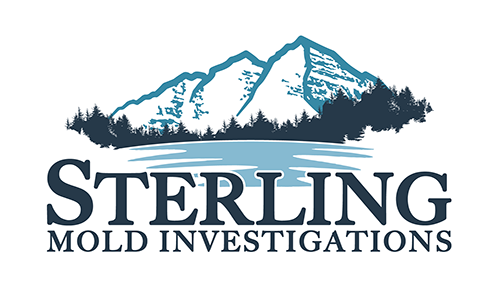Buying a home is one of life’s most significant investments and decisions. Whether you’re a first-time buyer or a seasoned homeowner looking for an upgrade, the process is thrilling and daunting. A comprehensive checklist is invaluable to navigate the complex terrain of real estate. So, let’s break down the essential components of a homebuyer’s checklist to ensure you confidently find your dream home.
1. Homebuyer’s Checklist Define Your Needs and Wants
Before diving into the house-hunting frenzy, take a moment to reflect on your lifestyle, preferences, and priorities. Create a list differentiating between your essential needs and desirable wants. Consider factors such as location, size, number of bedrooms and bathrooms, outdoor space, and amenities. Being clear about your requirements will streamline the search process and prevent you from getting sidetracked by properties that don’t align with your goals.
2. Set Your Budget
Establishing a realistic budget is crucial in determining the type of properties you can afford. Consider your savings, income, existing debts, and future expenses. Consult with a financial advisor or mortgage broker to assess your financial capacity and secure pre-approval for a loan. When calculating your budget, remember to factor in additional costs such as closing fees, property taxes, and maintenance expenses.
3. Research Neighborhoods
The location of your future home plays a significant role in your overall satisfaction and quality of life. Research different neighborhoods to find the one that best suits your needs. Consider factors like proximity to schools, workplaces, shopping centers, recreational facilities, public transportation, and safety ratings. Explore the community’s amenities to ensure they fit your lifestyle and preferences.
4. Assess Property Features
Once you’ve identified potential neighborhoods, it’s time to focus on the properties themselves. Attend open houses, schedule viewings, and scrutinize each home with a discerning eye. Pay attention to structural integrity, layout, natural light, storage space, and potential renovation needs. Evaluate the condition of essential features such as roofing, plumbing, electrical systems, and HVAC units. Don’t hesitate to ask questions and request disclosures to gain a comprehensive understanding of the property’s history and maintenance.
5. Consider Future Resale Value as Part of Your Homebuyer’s Checklist
While you may envision your new home as a long-term investment, it’s essential to consider its resale potential. Look for properties with timeless appeal and features that are likely to attract future buyers. Evaluate market trends, neighborhood appreciation rates, and upcoming developments that could impact property values. A home with strong resale value provides financial security and flexibility if your circumstances change in the future.
6. Perform Due Diligence
Before making an offer, conduct thorough due diligence to uncover any potential red flags or hidden issues. Hire a qualified home inspector to assess the property’s condition and identify any structural, mechanical, or safety concerns. Test for mold, radon, and contaminants in the water system of the new home. Review the seller’s disclosure statement, title report, and HOA regulations to ensure you’re fully informed about the property’s legal and financial status. Consult legal and real estate professionals to address any uncertainties or complexities.
7. The Final Step on Your Homebuyer’s Checklist: Negotiate and Close the Deal
Armed with the knowledge from your due diligence, it’s time to negotiate the terms of the sale. Work closely with your real estate agent to craft a competitive offer that reflects the property’s value and aligns with your budget. Be prepared to negotiate price, contingencies, and closing timelines to reach a mutually beneficial agreement. Once the offer is accepted, proceed with the closing process, ensuring all necessary paperwork and financing arrangements are in order. Celebrate as you embark on the exciting journey of homeownership.
Navigating the process of buying a home can be overwhelming, but with a comprehensive checklist in hand, you can approach it with confidence and clarity. By defining your needs, setting a budget, researching neighborhoods, assessing property features, considering future resale value, performing due diligence, and negotiating effectively, you’ll be well-equipped to find your dream home. Remember, patience and perseverance are key virtues in the pursuit of homeownership.
Frequently Asked Questions for Homebuyers
How much should I budget for a down payment and closing costs?
Down payments typically range from 3% to 20% of the home’s purchase price, while closing costs usually amount to 2% to 5%. Percentages can vary based on factors like loan type and location.
What are homeowner association (HOA) fees, and how do they affect me?
HOA fees are regular payments covering maintenance of shared amenities and common areas. Review HOA rules, regulations, and financial statements to understand how these fees may impact your budget and lifestyle.
What should I do if I encounter issues with the home after purchase?
If you face post-purchase issues, refer to warranties provided by the seller or builder, address concerns through negotiation or mediation, and seek legal advice if necessary, especially for significant defects or breaches of contract.
What ongoing expenses should I budget for as a homeowner?
Ongoing expenses for homeowners include mortgage payments, property taxes, homeowners insurance, utilities, maintenance, repairs, emergency funds for unexpected expenses, and consideration of potential future renovations or upgrades.
What resources and assistance are available for first-time homebuyers?
Many programs offer assistance to first-time homebuyers, including down payment assistance, grants, and favorable loan terms. Research federal, state, and local programs, consult with lenders, and explore options like FHA loans or VA loans if eligible.
Sterling Mold Investigations offers professional mold inspection and testing to the Denver Metro and Boulder areas. Contact us to request an inspection.

